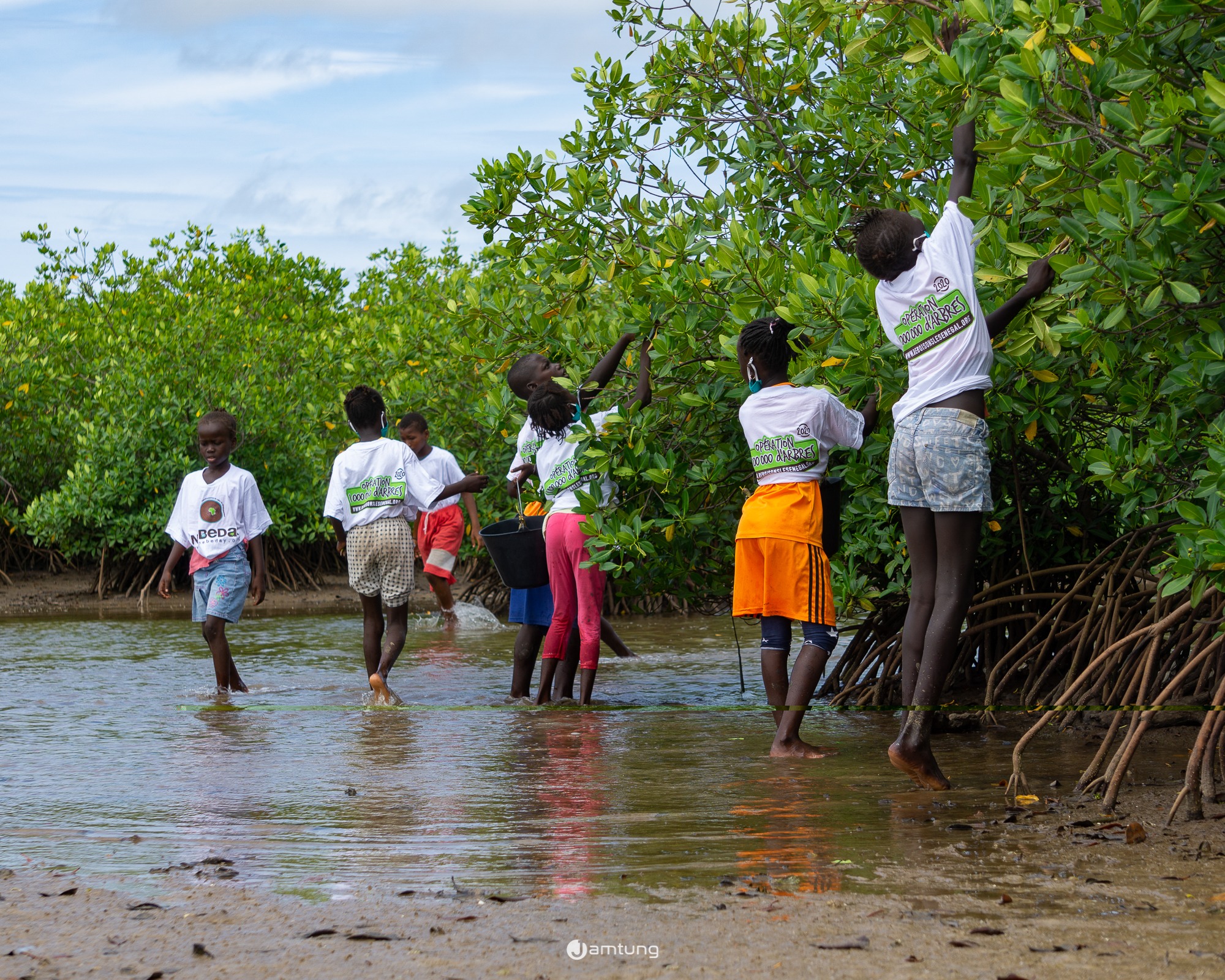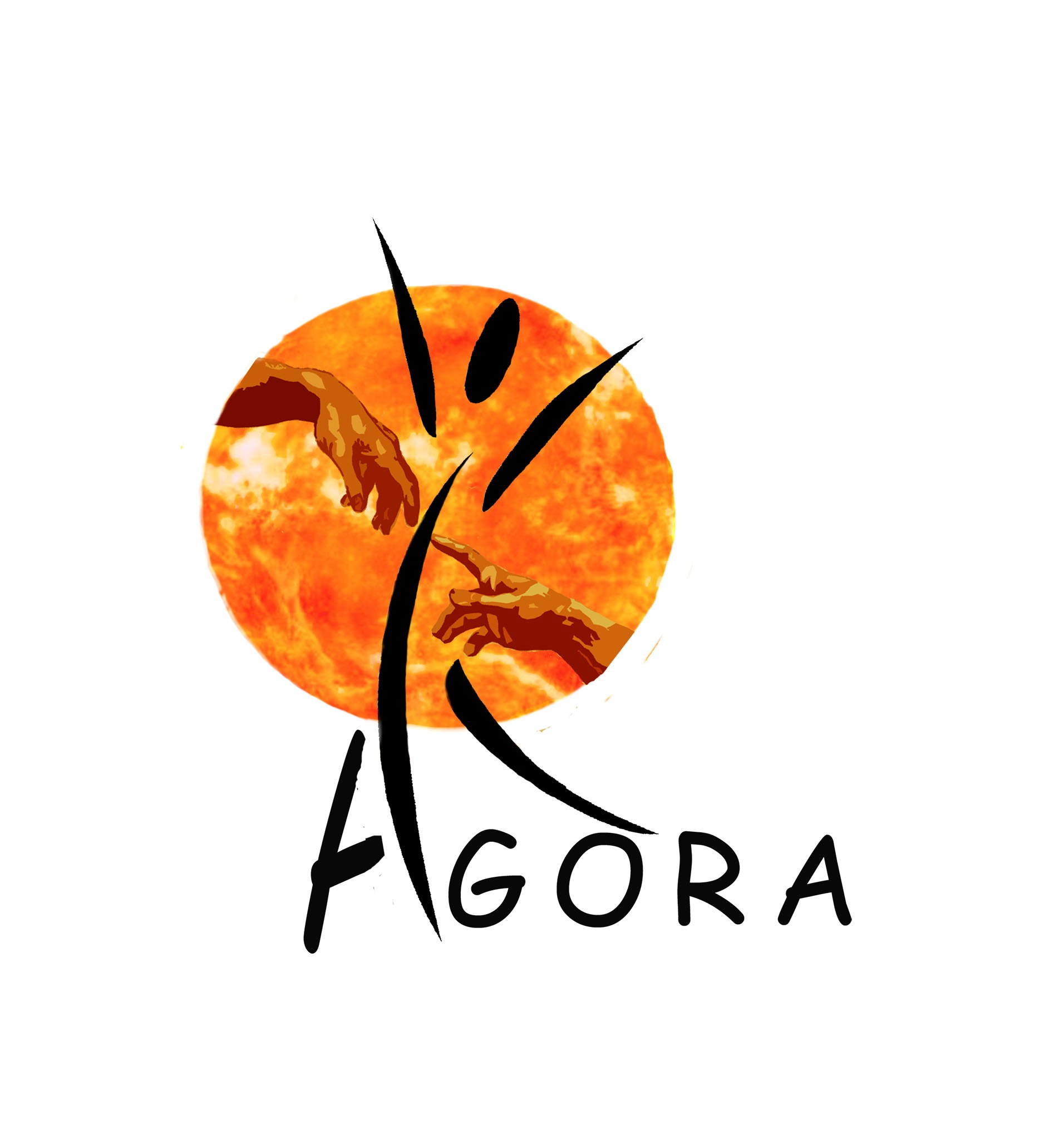
2021
Created in 2015 by a team of young Senegalese doctors, AGORA is one of the first non-profit public health organization in Senegal. Recognized by the Senegalese Ministry of the Interior, the NGO aims to sustainably improve the health of local communities through the implementation of public health programs. Based in Saint-Louis, in the north of Senegal, AGORA concentrates its activities in the most isolated areas, with the most vulnerable women and children. AGORA’s programs are designed to consider the expectations and cultural specificities of the beneficiaries. Using a participatory approach, the association thus works directly alongside local communities and authorities to best meet needs and ensure the sustainability of programs.
In 2017, the Foundation supported the association AGORA to help it screen malnourished children as early as possible. Once identified, AGORA takes care of these children at a nutritional rehabilitation center in the Saint-Louis region.
To learn more about this project, go here
The project supported in 2021: The Foundation is participating in the development of a mobile school canteen model by financing the equipment of a canteen, the purchase of a utility vehicle and the implementation of nutritional monitoring for school children.
To enable AGORA to continue its mission in the Saint-Louis region, the Bel Foundation has decided to support the association for another year. In this region, which is particularly affected by malnutrition, children do not always have the opportunity to have a daily meal. The association thus initiated a first project of mobile school canteens in 2020 with, a few pilot schools in the region.
Based on this first experience, AGORA asked the Foundation to strengthen and deploy this project. Thanks to the Foundation’s support and the NGO’s action in the field, AGORA will be able to prepare meals in a large canteen. With the help of a utility vehicle, these meals will then be distributed to three particularly disadvantaged elementary school. Thanks to the involvement of the parents, the school committees will then be able to ensure a daily distribution of these meals to the 700 schoolchildren throughout the school year. AGORA also wants to provide better knowledge of nutrition to students. The NGO has developed various educational tools that are available to children, their parents, and teachers. This project also allows AGORA to identify potential new cases of malnourished children in the schools, and to be able to take care of them very quickly in the nutritional rehabilitation center.
Through this project, AGORA wishes to deploy a model of mobile school canteens, in order to fight against child malnutrition in the region in a sustainable way.
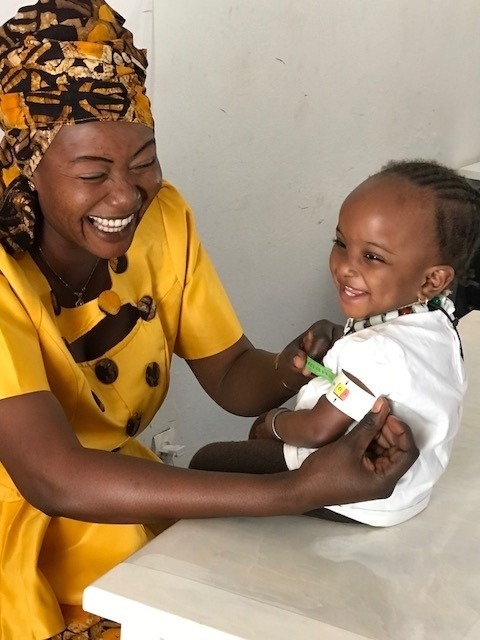
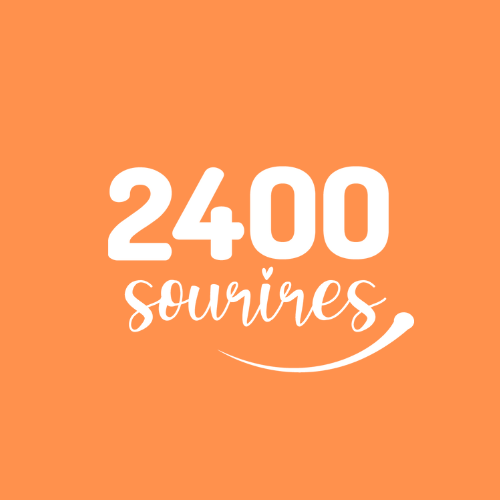
2021
The French NGO “2400 Sourires” was born in 2019 with the objective of bringing aid to the underprivileged children of Madagascar, and more particularly to the street children of the Malagasy capital, Antananarivo. Based on UNICEF studies which identified 2400 children in the streets of the capital, the NGO quickly launched the construction of an emergency reception village: the “Village of 2400 Sourires”. The objective is to accompany street children in a safe environment by offering them access to healthcare, food, and education.
The project supported in 2021: the Foundation is helping the association to build a school canteen for the children of the “Village of 2400 Sourires” in Madagascar.
Within the “Village of 2400 Sourires”, a school and a boarding school will welcome children from the streets and surrounding communities. In a very vulnerable situation, the children of the region generally do not have the possibility of feeding themselves daily. The NGO therefore asked the Foundation to help them overcome their food insecurity. With the goal of having a meal every day, this project makes school more attractive for these children and improves their learning conditions. Identified and taken care of in the “Village of 2400 Sourires”, these children will benefit from support throughout their education as well as from regular medical follow-up.
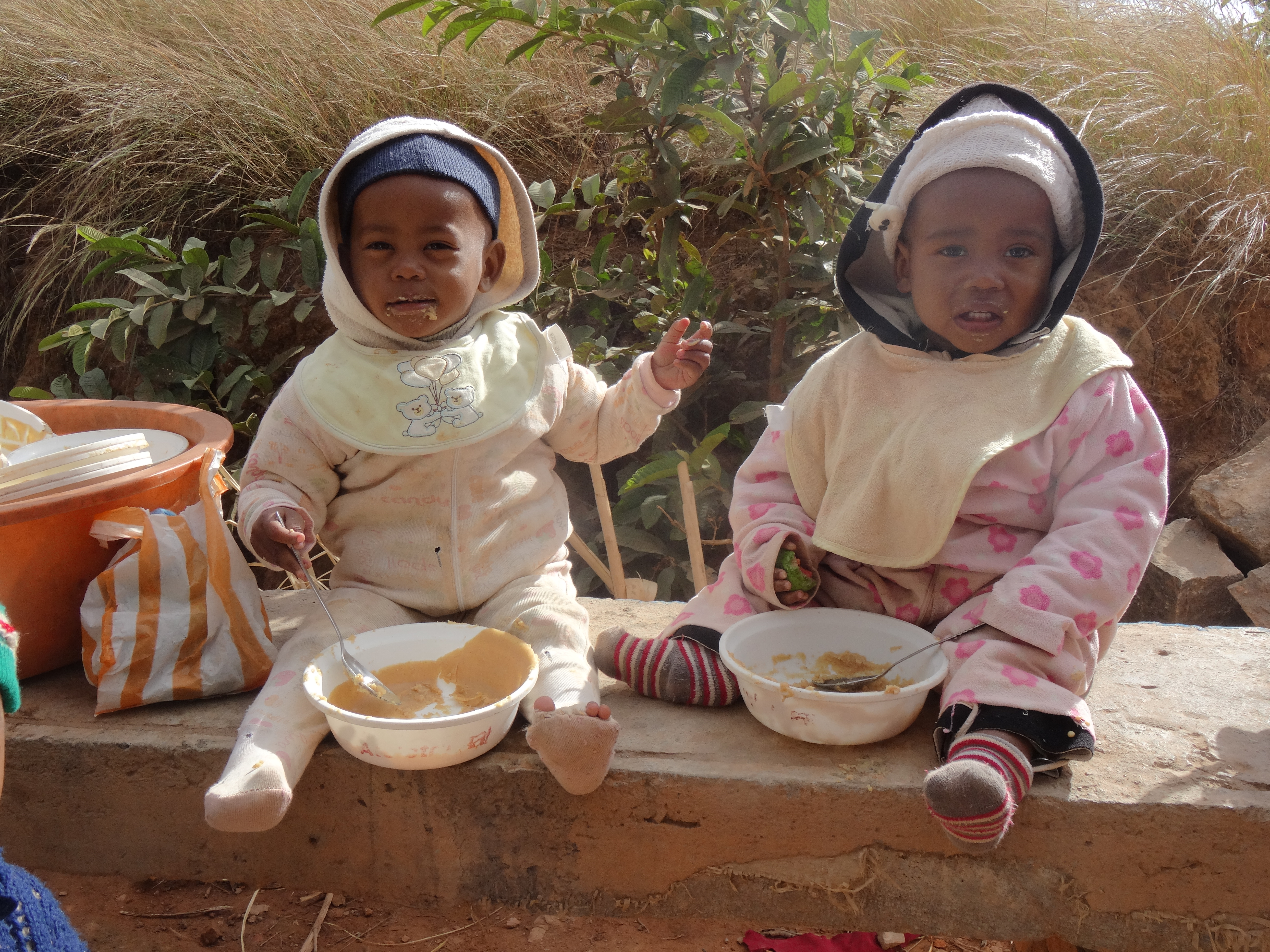

2021
Founded in 2002, Hand in Hand India is an Indian NGO whose mission is to promote the education of children and the professional integration of young people, in order to sustainably fight against child labor, in India. Hand in Hand India received an award from the Indian government in 2019, rewarding its work in the fight against child labor, which has notably enabled the integration of more than 300,000 children in public schools. The NGO is now active in 16 states in India.
Among its actions, Hand in Hand India provides special support to several schools, identified by the Indian government as priorities. In 2018, the Bel Foundation supported a first “Hand in Hand India” project that enabled the construction of a school canteen, in an underprivileged region of Bangalore. For more information on this project, click here.
The project supported in 2021: with the help of the Bel Foundation, Hand in Hand India is building a 43 square meter canteen in the region of Bangalore, and is setting up training workshops on hygiene and nutrition.
Within the framework of its school program to fight against child labor, (“The Child Labor Elimination Program“) the association manages about ten schools. Hand in Hand India has identified needs in a Government school located in Bangalore. The school provides healthy and nutritious lunches to the children, but it does not have a safe and large enough infrastructure for the school children to eat sheltered from wind and dust. In terms of sanitation, the school does not have adequate hand-washing facilities either.
The Bel Foundation’s support allows Hand in Hand India to improve the hygiene conditions of the 127 students at mealtime, by guaranteeing them a healthy and pleasant environment and by allowing the training of teachers and the school committee on health and hygiene issues, which are particularly important in a context of health crisis.
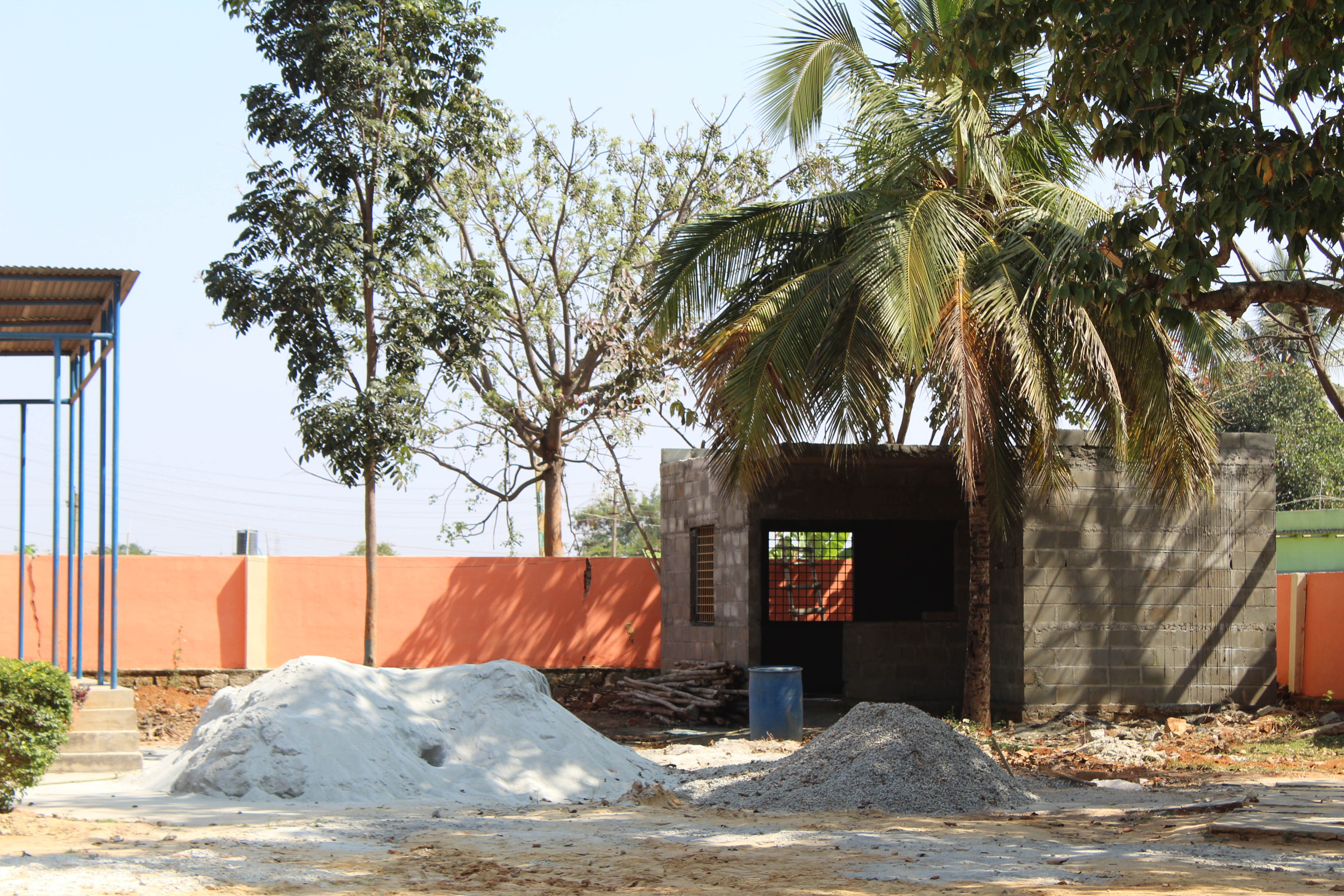
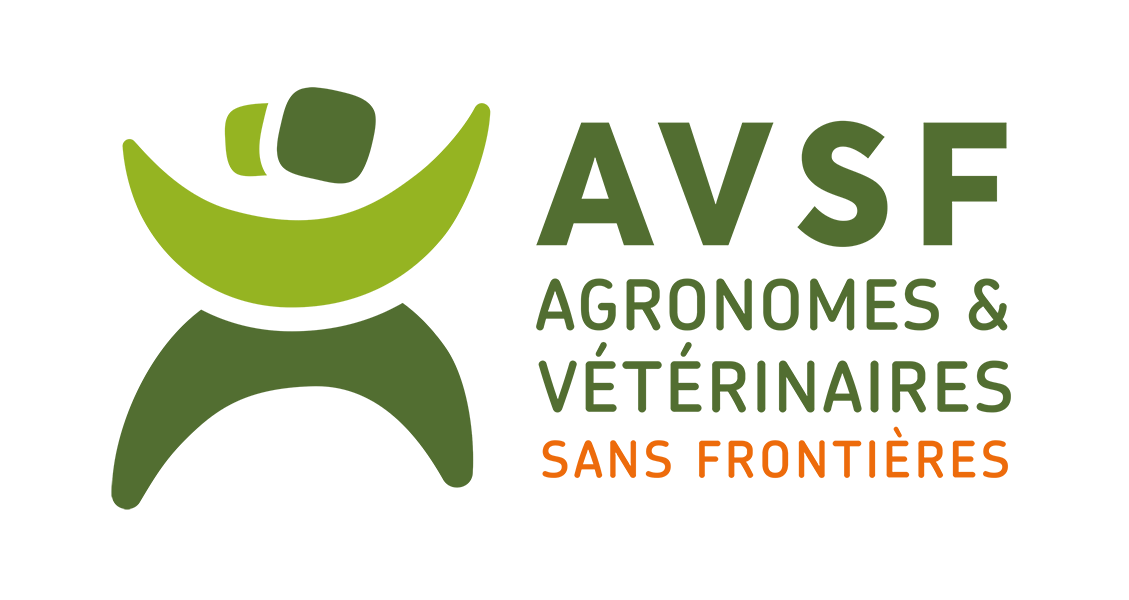
2021
Agronomes et Vétérinaires Sans Frontières (AVSF) is an NGO that has been accompanying the most vulnerable rural families for 40 years in the development of agricultural and livestock activities, in order to sustainably fight against food insecurity. Each year, AVSF conducts some sixty cooperation programs in some twenty countries in Africa, Asia, Central and South America, and the Caribbean. In Africa, the NGO has been particularly active for several years in the department of Vélingara, one of the poorest regions in Senegal.
Since 2016, the Bel Foundation has accompanied AVSF on several missions in this region to help relocate dairy production while fighting malnutrition in local communities. The Foundation’s historical support for AVSF’s work has made it possible to strengthen networks of cooperative mini-dairies, through the “Milk for Kids” project in particular, thus making it possible to supply the region’s school canteens with local dairy products and improve the nutrition of schoolchildren. By strengthening the production, processing, and sales capacities of the Senegalese milk industry, AVSF has also enabled many families to see their income increase and thus improve their living conditions in the long term. The Bel Foundation’s latest support in 2019 offered leverage to AVSF’s action in Senegal: indeed, in November 2020, the French Development Agency (AFD) confirmed its support to the NGO to deploy the project in 57 new schools in partnership with GRDR, making it possible to improve the food security and learning conditions of more than 7,000 children.
For more information on this latest project, go here.
The project supported in 2021: in the continuity of the “Milk for Kids” project, the Foundation is supporting AVSF on the “Tabital” project, for the structural reinforcement of 8 new school canteens, in the department of Vélingara in Senegal.
In the continuity of the “Milk for Kids” project, the Foundation wished to renew its support to AVSF to enable it to continue its mission in Vélingara: to sustainably improve the school food supply and the education of local populations. The Foundation’s support will enable the NGO to build and equip eight new canteens in five rural communities. Training and awareness-raising activities will also be provided to the management committees of the targeted schools, in order to guarantee the functioning and sustainability of the canteens created. In total, 1,200 children will benefit from a daily meal and better learning conditions.
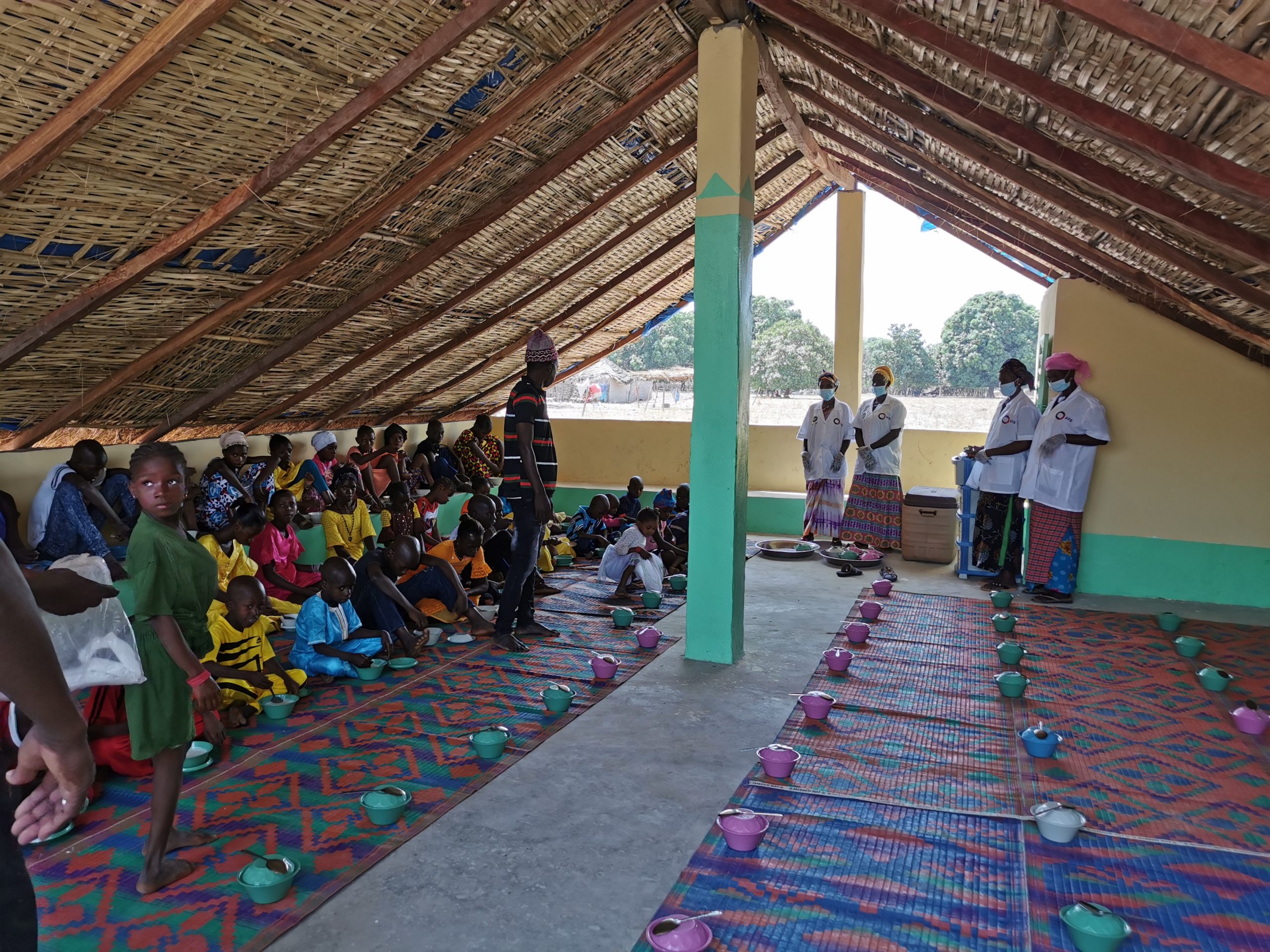
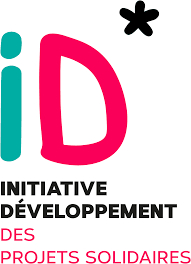
2021
Founded in 1994, Initiative Développement operates mainly in French-speaking Africa: Senegal, Burkina Faso, Republic of Congo, Benin, Chad, Comoros and Madagascar. For the past 25 years, Initiative Développement has been involved in empowering local actors to build and implement their own responses to social, environmental and economic challenges in their territories. Initiative Développement works in health, education, environmental protection, and access to energy and water.
The NGO has twice received support from the Bel Corporate Foundation to promote the use of improved stoves in Congo (2016) and Senegal (2020).
In Senegal, it is working with its partner, the Fatick Regional Development Agency, a technical support service for the region’s communities.
The project supported in 2021: the Foundation is working with Initiative Développement to strengthen the infrastructure of 13 school canteens in the Fatick region of Senegal.
This project is a continuation of the project supported by the Foundation in 2020, which allowed 12 schools in the Fatick region to benefit from improved stoves that save fuel and reduce smoke emissions. The school staff also benefited from support to improve the nutritional quality of the meals and to set up a system of local contribution and solidarity for the supply of canteens, called “Educational Attic”.
With the renewed support of the Foundation, the NGO wishes to reinforce the food autonomy of these 12 schools and of a new one that has been identified in the region. To this end, the schools will benefit from new kitchens, equipped with improved stoves. A significant planting of trees inside or near the schools is also planned to reinforce, in the long run, the autonomy of the schools in wood-energy.
This intervention will facilitate and secure the preparation of meals for the 3,288 students, while contributing to the fight against local deforestation, a problem particularly present in the region.
Through this project, Initiative Développement and its partner want each child to have a healthy and balanced meal in a resilient school that respects its environment.
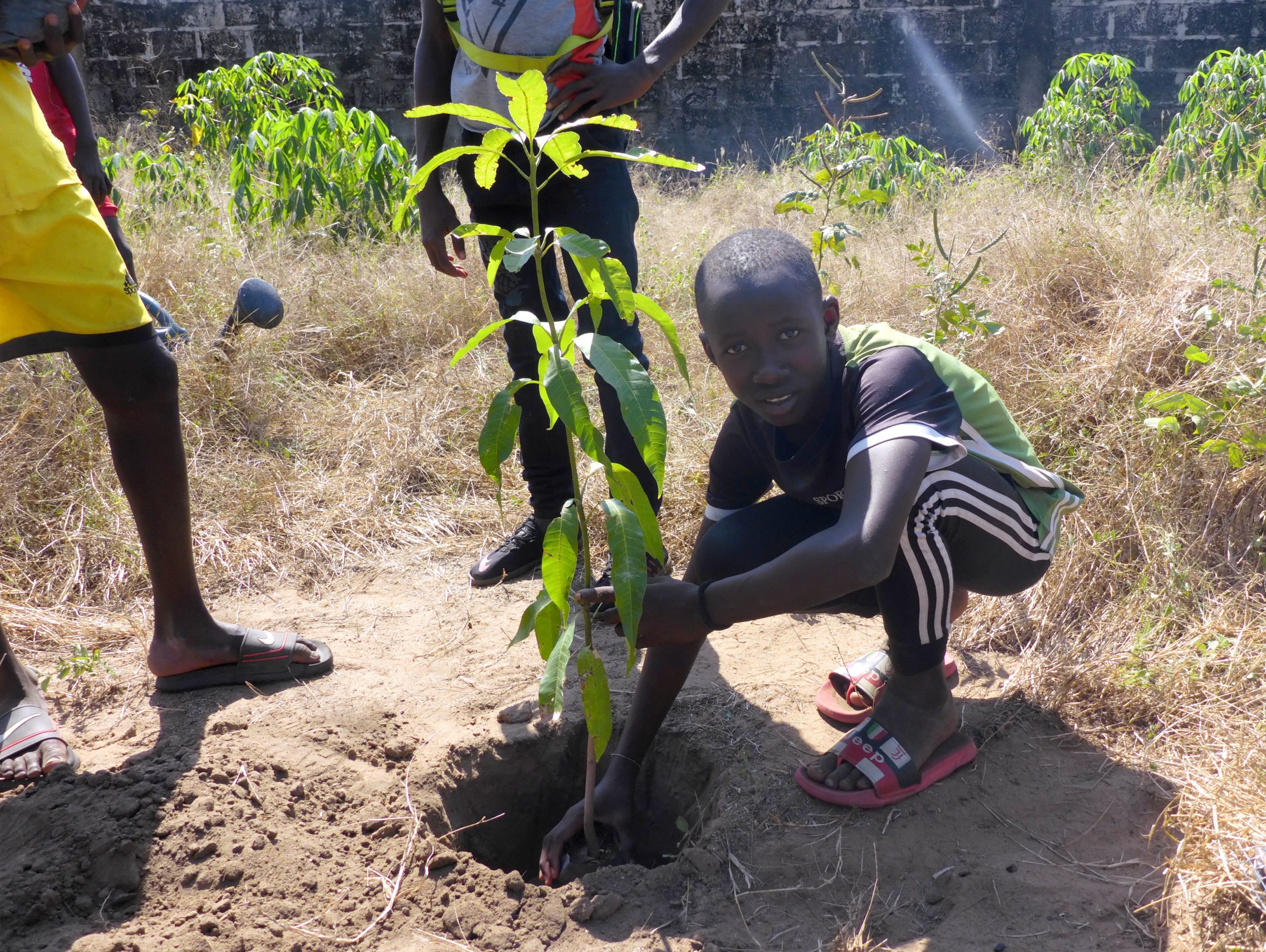
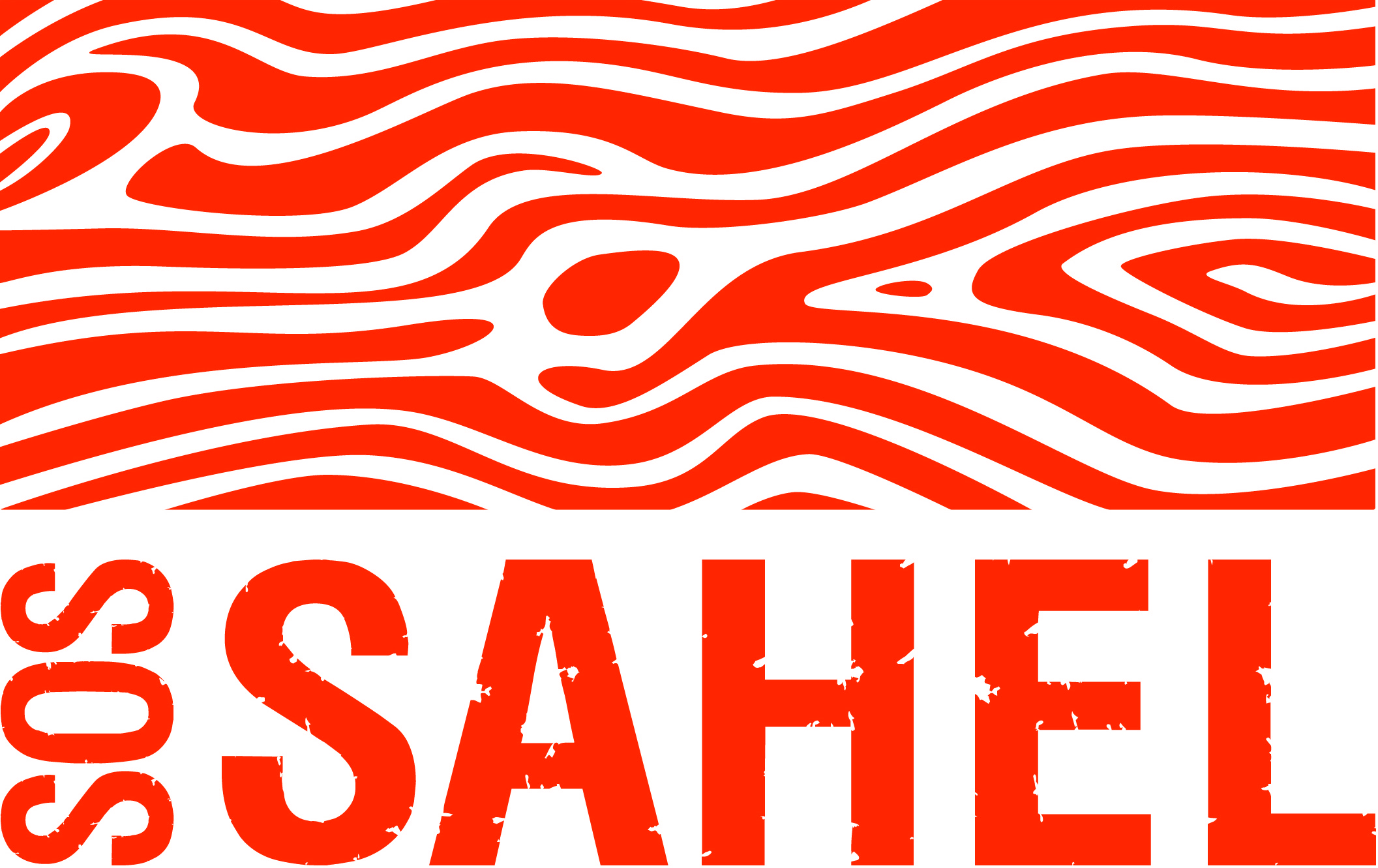
2021
For more than 40 years, the NGO SOS SAHEL has been working to improve the living conditions of the populations of sub-Saharan Africa. It provides special support to rural communities in Africa to help guarantee their food security. Thanks to its expertise in the field and with the help of a network of more than 1,000 actors from different and complementary backgrounds (journalists, agronomists, sociologists, etc.), SOS SAHEL works in particular in the fields of sustainable agriculture, access to water and strengthening of capacities for local actors.
As historical partner, the Foundation has been working alongside SOS SAHEL since 2015 to fight child malnutrition in Burkina Faso. In 2017, the Bel Foundation had supported the NGO in developing Nutrisco Clubs.
The project supported in 2021: the Foundation and SOS SAHEL want to strengthen the food and nutritional security of the most vulnerable populations in 9 rural communes in southeastern Senegal, by developing 8 new Nutrisco Clubs within schools.
For several years, SOS SAHEL has set up numerous Nutrisco Clubs, notably in Burkina Faso and Chad. In groups, volunteer students meet and learn good hygiene, nutrition, and agricultural practices through fun and interactive exercises. The harvests from the school gardens are used to supply the canteens with fresh fruits and vegetables. Thanks to this program, which is both theoretical and practical, the children become “little ambassadors of nutrition” and can then share their knowledge within their communities. These clubs thus represent a real educational tool in the fight against malnutrition on a large scale.
On the strength of this experience, SOS SAHEL wishes to extend this concept to new countries and has asked the Bel Foundation to set up Nutrisco Clubs in Senegal. The project aims to improve the nutrition and knowledge of the populations of 45 villages. For the next school year, 1,500 students from 9 schools will be able to discover and participate in the implementation of Nutrisco Clubs and benefit from enriched meals, thus contributing concretely to improving their learning conditions and their development.
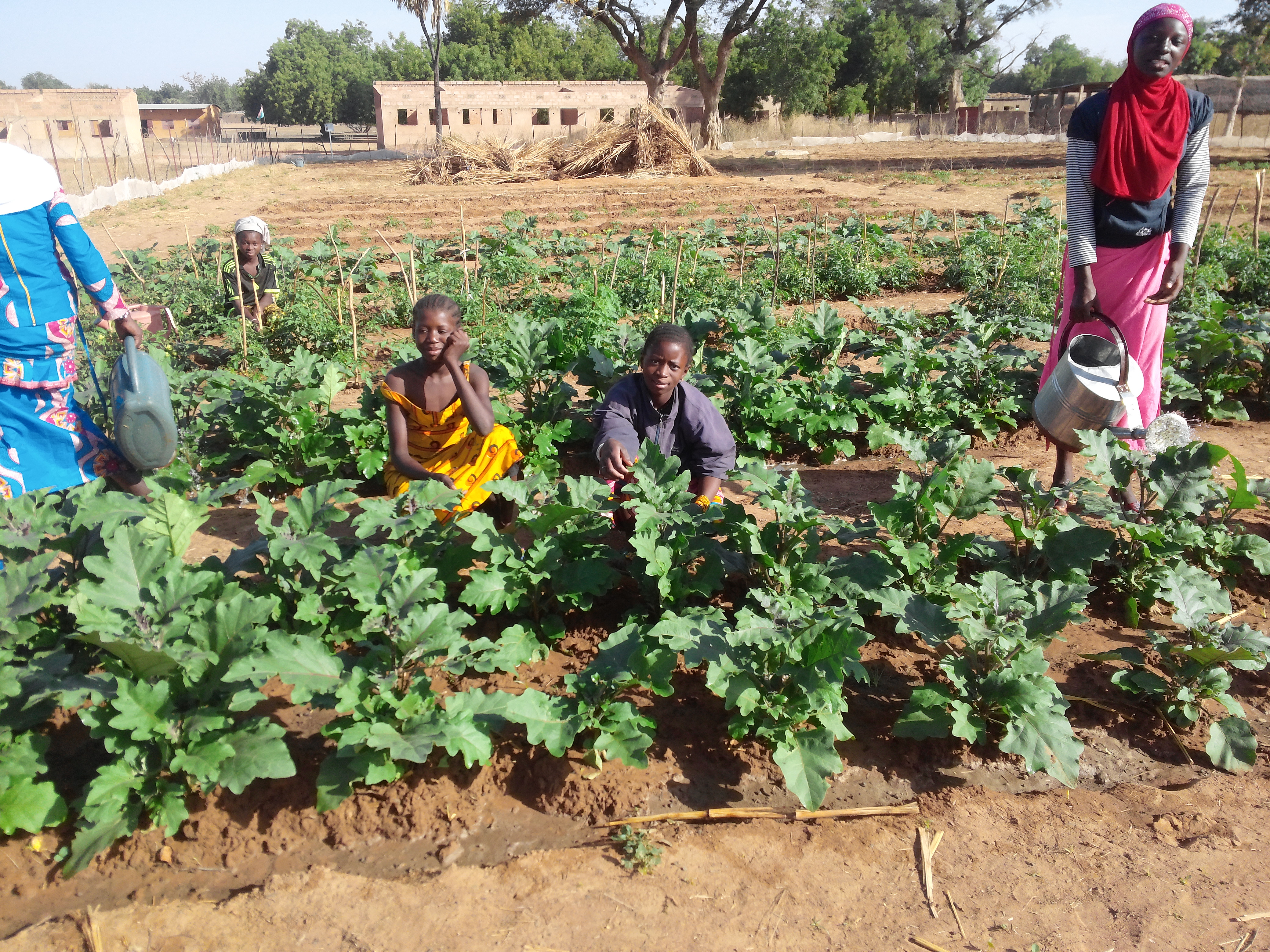
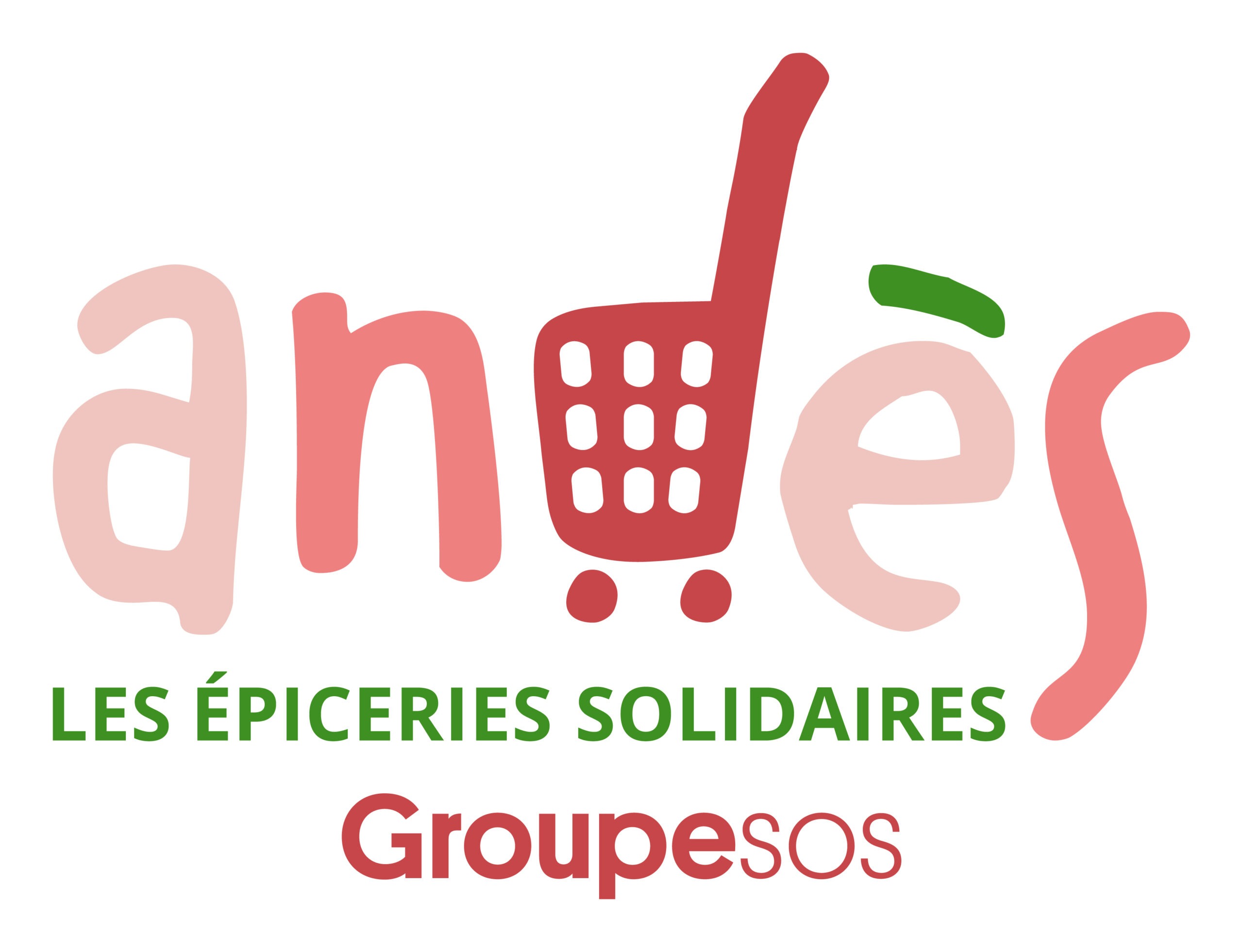
2021
Created in 2000, ANDES (Association Nationale de Développement des Épiceries Solidaire) is one of the main food aid networks in France. Today, the association federates more than 500 solidarity grocery stores, offering participatory food aid, as well as social support to thousands of grocery store beneficiaries. Through its action, ANDES provides a response prior to emergency food aid and contributes to the social and professional integration of its beneficiaries.
Given the increasing needs of the most vulnerable populations, ANDES’ objective is to strongly develop the network of solidarity grocery stores. In 2021, ANDES has been the winner of France Relance, a key support that will enable it to plan the creation of 300 new structures in France.
The project supported in 2021: the Foundation supports the creation of 5 new solidarity grocery stores and educational visits for the children of beneficiary families, to reconnect with the origin of their food.
Solidarity grocery stores are very important local relays in the fight against food insecurity, while promoting access to fresh and quality products for isolated or low-income populations. Within these grocery stores, ANDES’ challenge is also to raise awareness among beneficiaries about the importance of better nutrition. Through the inclusion and participation of families, ANDES also contributes to developing and strengthening the self-esteem of each family.
Beyond the creation of these new grocery stores, the Foundation’s support also allows to offer tools and organize educational visits to reconnect children with the origin of their food. In particular, “farm days” will be offered to the children who benefit from the grocery stores, allowing them to meet new people, discover a new environment, and benefit from moments of peace in an often complicated daily life.
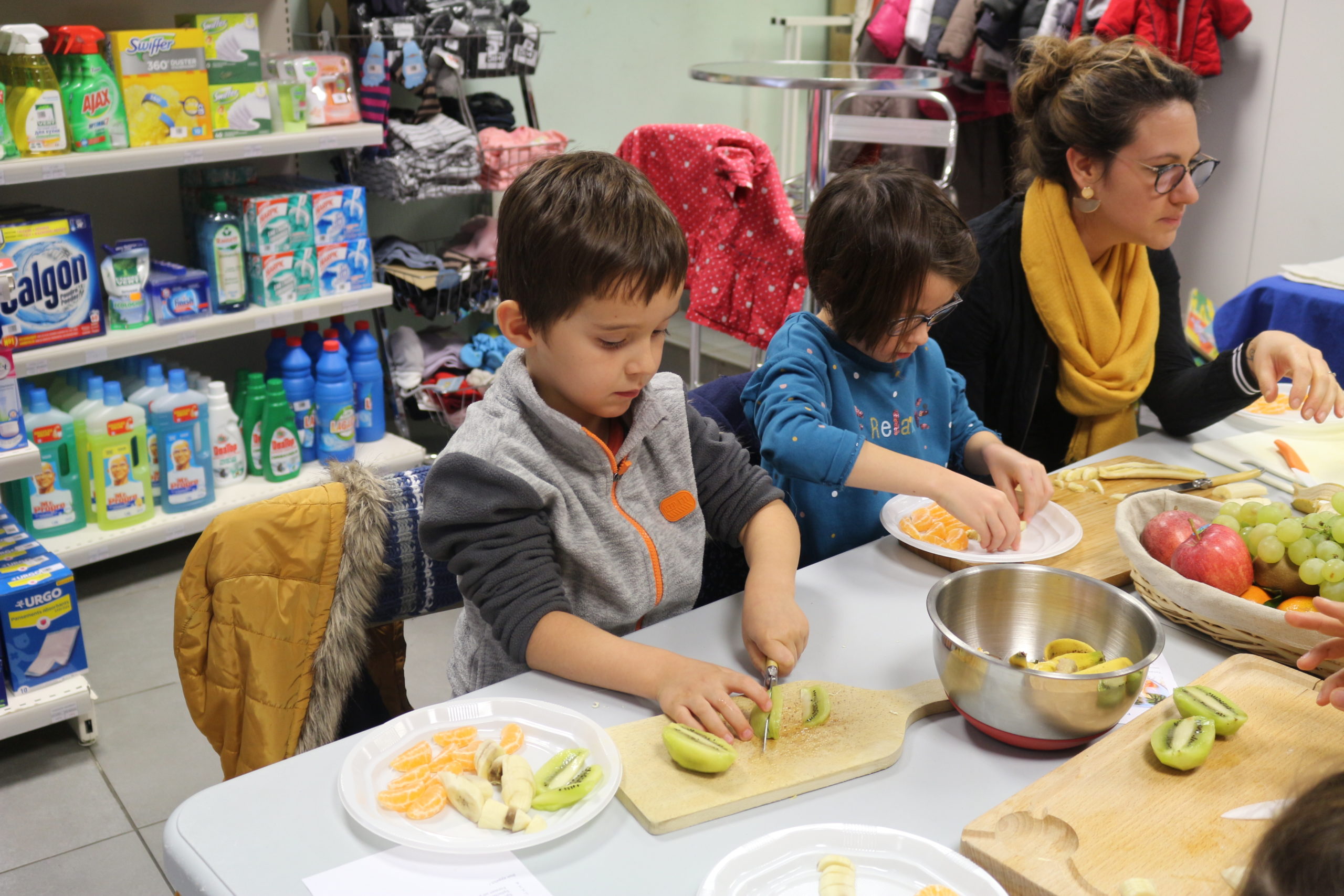
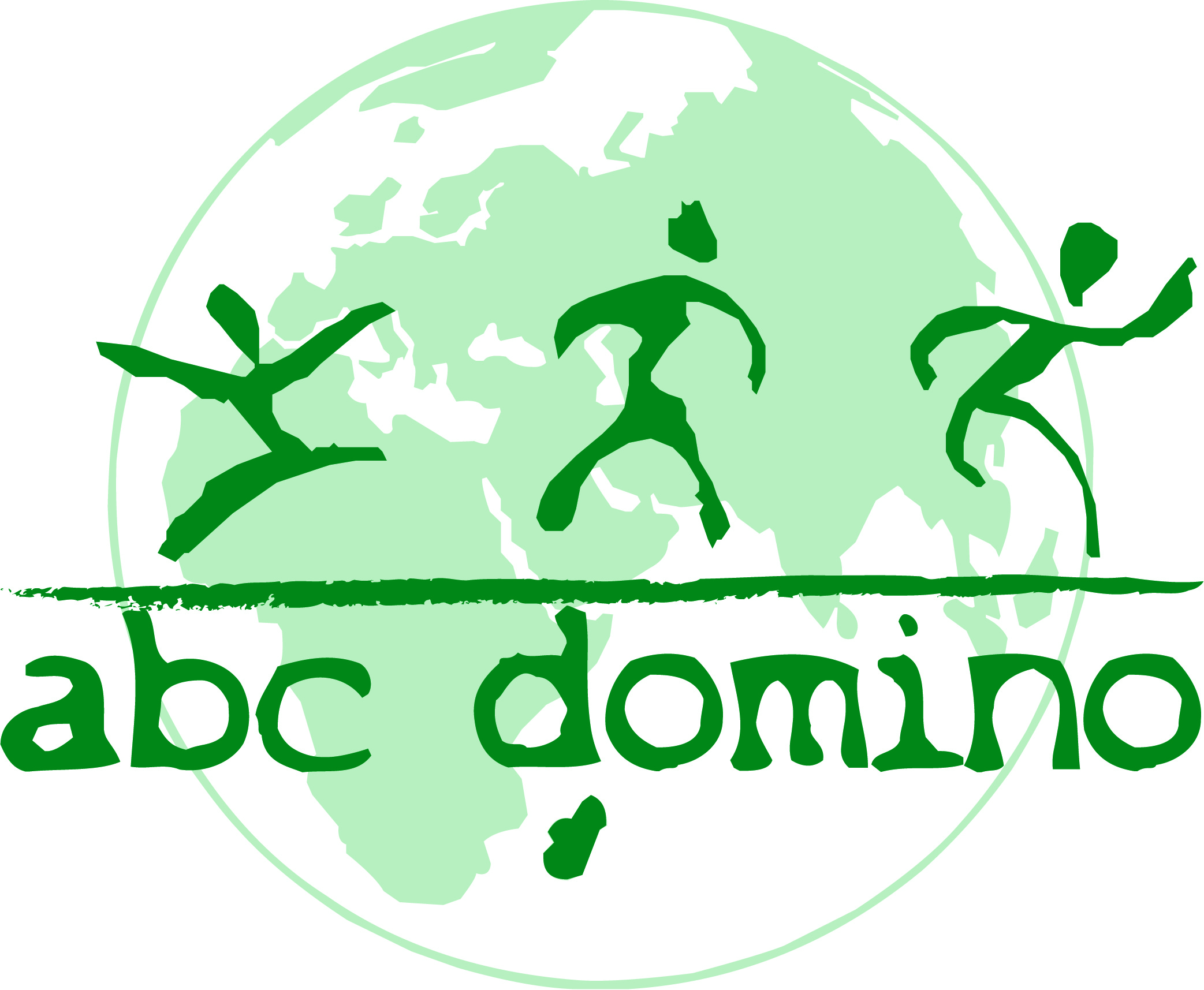
2021
Founded more than 15 years ago on the initiative of the European Homes Group, the ABC Domino organization works exclusively in Madagascar to improve the living conditions of local populations, and to provide access to education. Established in the bush in the Great South, the organization has built six elementary school, as well as two junior high schools and one high school, run by ABC Domino. Through its work, more than 3,500 students receive an education, coordinated by a team of 110 Malagasy teachers.
The Bel Foundation has supported ABC Domino twice before, first to build the canteen of an elementary school (2019) and then to participate in the creation of a first nursery and an orchard next to the high school (2020).
The project supported in 2021: the Foundation renews its support to ABC Domino in order to create a new nursery and an orchard, to supply two elementary school created by the NGO in this same region.
This project is a continuation of the previous project supported by the Foundation in 2020. The association is continuing its work in the South. In this region, which is increasingly subject to drought and deforestation, ABC Domino is working to ensure the diversification of the food supply in its schools.
In order to include learning about agriculture and environmentally friendly practices in the educational project, vegetable gardens have been created in several schools.
The project supported by the Foundation allows the creation of a nursery to produce plants for an orchard. The species chosen are mainly for food but also for medicinal purposes or to produce wood for energy or construction.
Through this project, the association also wishes to sensitize the students’ families to water management, biodiversity and the environment. ABC Domino offers a replanting program of endemic and wild species from the nurseries, while proposing educational activities on these themes.
With this new project, ABC Domino continues its mission to guarantee a healthy and balanced diet for nearly 600 children, while giving the population the possibility to act for a better future and for the protection of its environment.
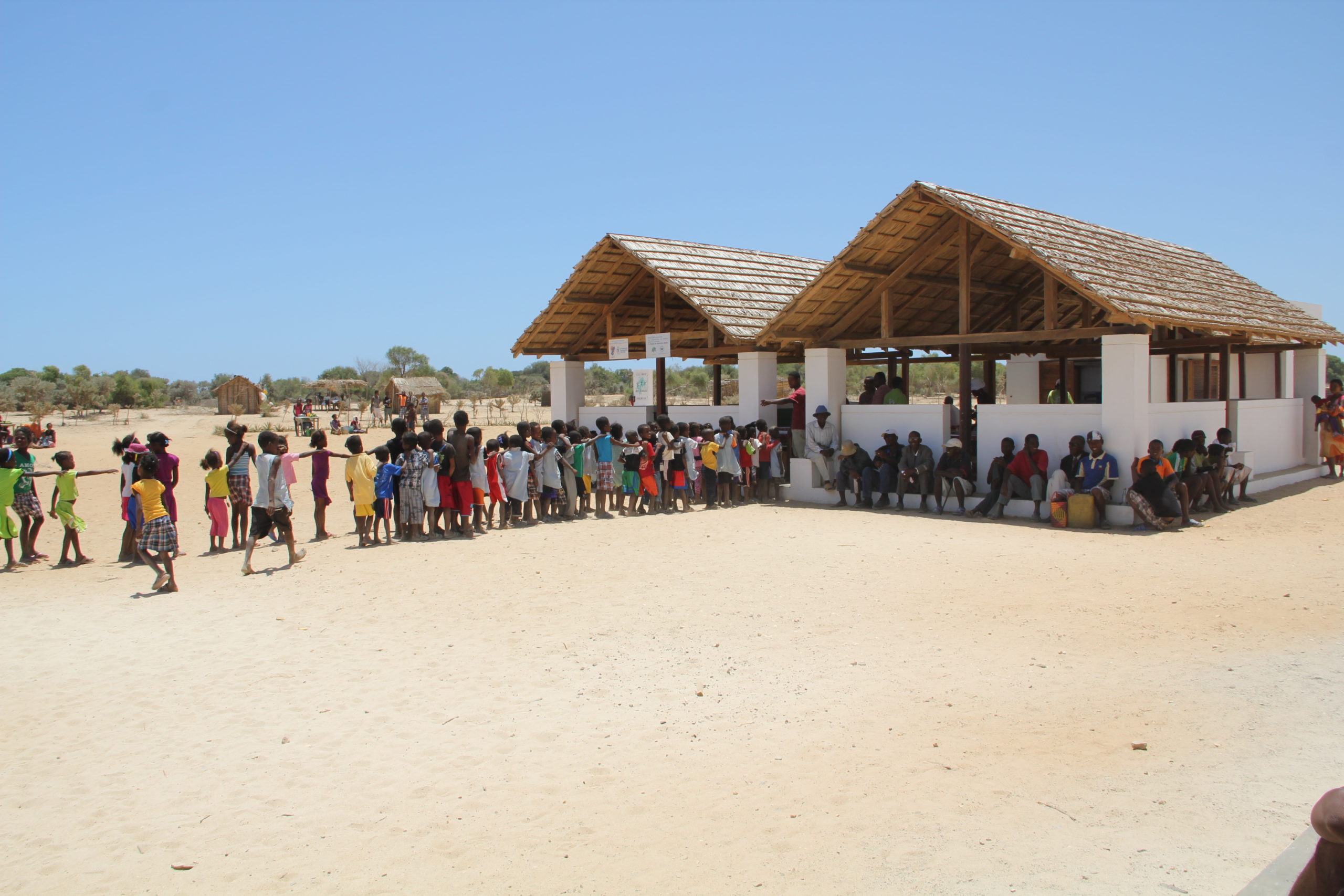

2021
Medical Committee Netherlands Vietnam is a Dutch foundation that has been committed to improving the living conditions and promoting the inclusion of vulnerable and marginalized populations in Southeast Asia since 1968. The Foundation has set up various development projects in remote areas of Vietnam and Laos. Among these projects, MCNV provides special assistance to people with disabilities, enables the development of micro-finance programs for women, and participates in the fight against child malnutrition and the prevention of infectious diseases.
MCNV has been supported 15 preschools in upland villages of Dong Xuan district (Phu Yen province), in Vietnam for several years. Their canteens now need to be renovated and made safer in order to provide an optimal environment for the children they welcome every day.
The project supported in 2021: the Foundation is providing financial assistance to MCNV to equip and renovate 15 kindergarten canteens located in the mountains of Phu Yen, a province in central Vietnam.
The Bel Foundation’s support will enable the purchase of electrical appliances to equip the kitchens, and furniture for the dining halls. Training will also be provided to school staff and parents to enable them to use the equipment and cook balanced meals. Through this project, MCNV will also be able to install water points and sanitary facilities to provide the best possible conditions for children to study in its kindergartens.
MCNV is also financing the purchase of food items. This global project aims to improve the nutritional status of more than 450 children under the age of 5 in upland villages, to guarantee the availability of healthy and nutritious food, and to provide a solid knowledge base to local communities on nutrition issues.
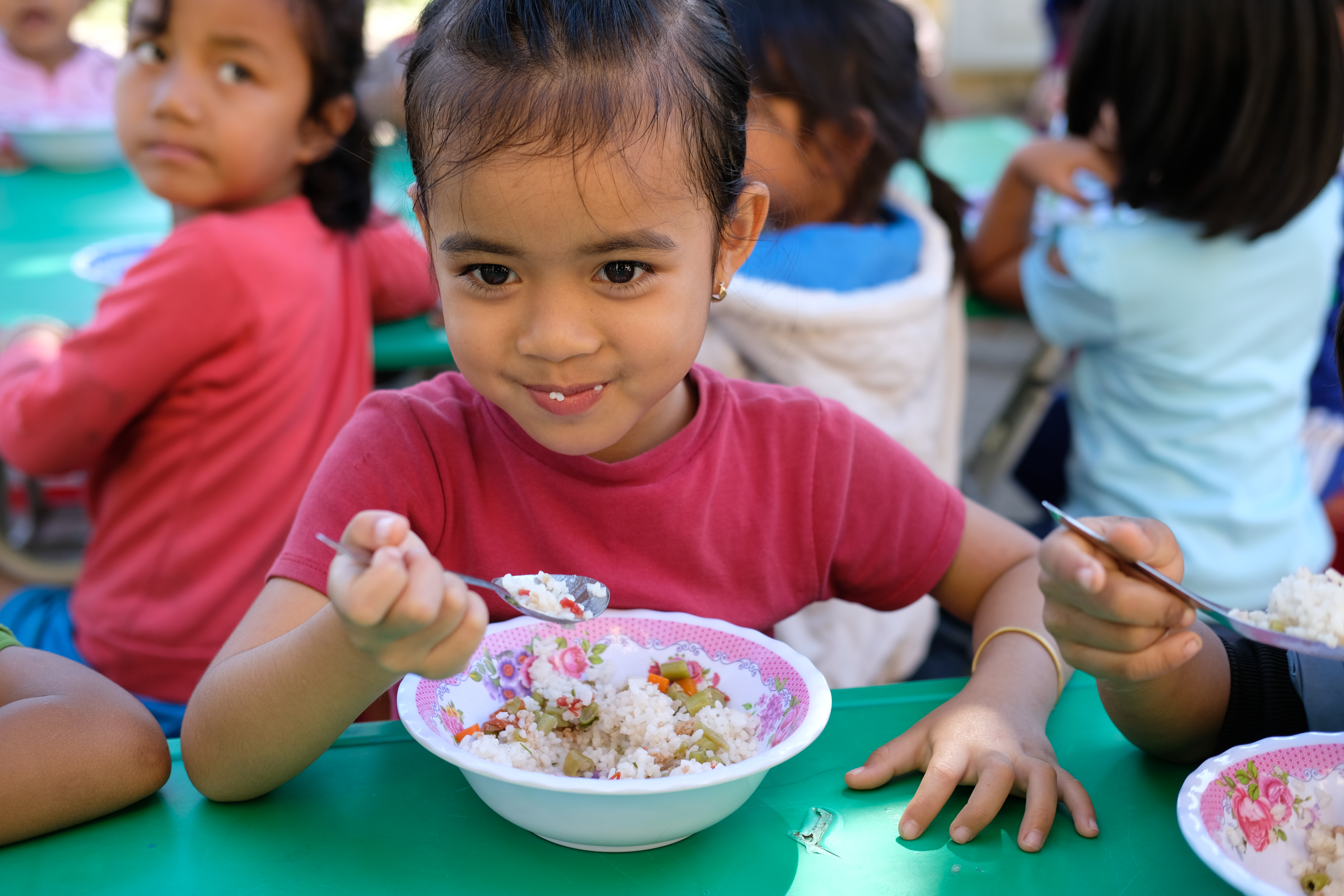
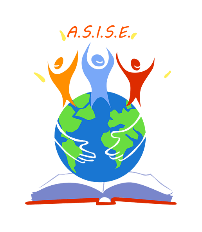
2021
The association ASISE (Association of International Solidarity for Health and Education) was created in 2018 to help populations in Africa and Asia, in partnership with local associations. With the experience of its President on health and humanitarian aid issues, ASISE implements various projects to improve the living conditions of the most deprived publics, by federating and coordinating local actors.
The project supported in 2021: the partnership between the Foundation and ASISE contributes to the construction and fitting out of the canteen of a kindergarten, located in an underprivileged area of the Ho Chi Minh region, in Vietnam.
In the context of the construction of a kindergarten with 8 classrooms, ASISE called on the Bel Foundation to enable the 350 schoolchildren to have a meal every day. This school welcomes children from modest families, working in the industrial zone of Ho Chi Minh, or living in the surrounding but remote agricultural regions. The issue of a balanced diet is key to the academic success and future of these children.
Within this school, the Foundation’s support has enabled the construction and fitting out of various kitchen facilities as well as a dining room. Awareness-raising activities for parents and children on the promotion of children’s health, hygiene, nutrition, waste sorting, and environmental protection are also provided. Through this project, ASISE is also creating jobs to ensure a good management of the canteen in the long term.
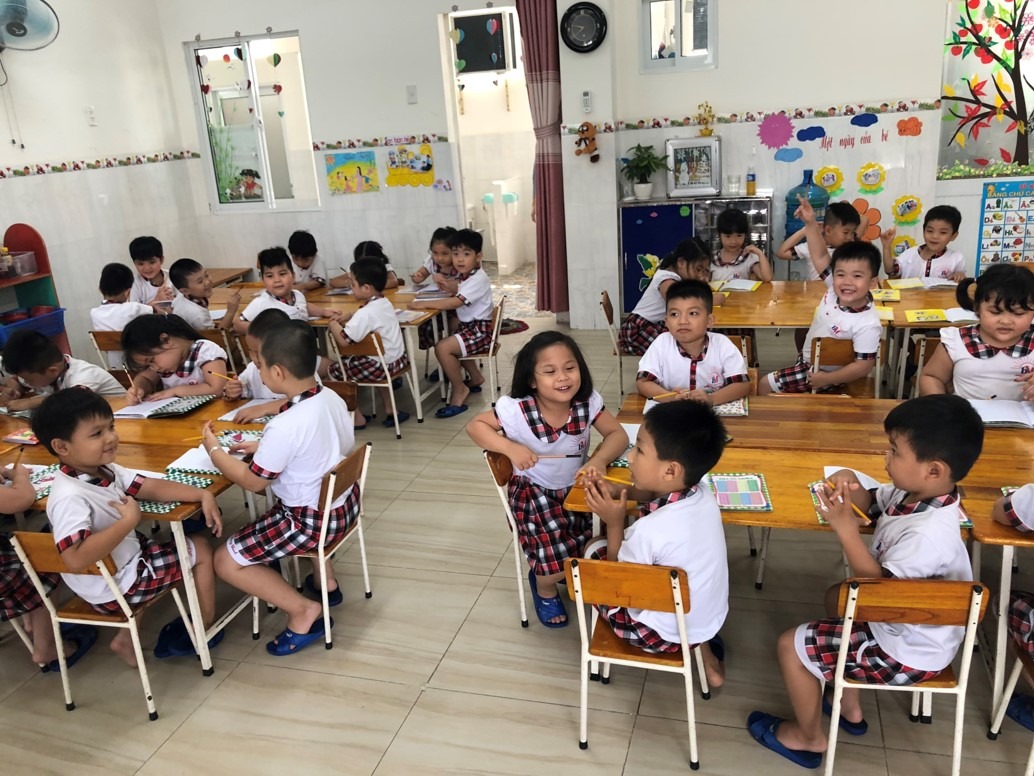
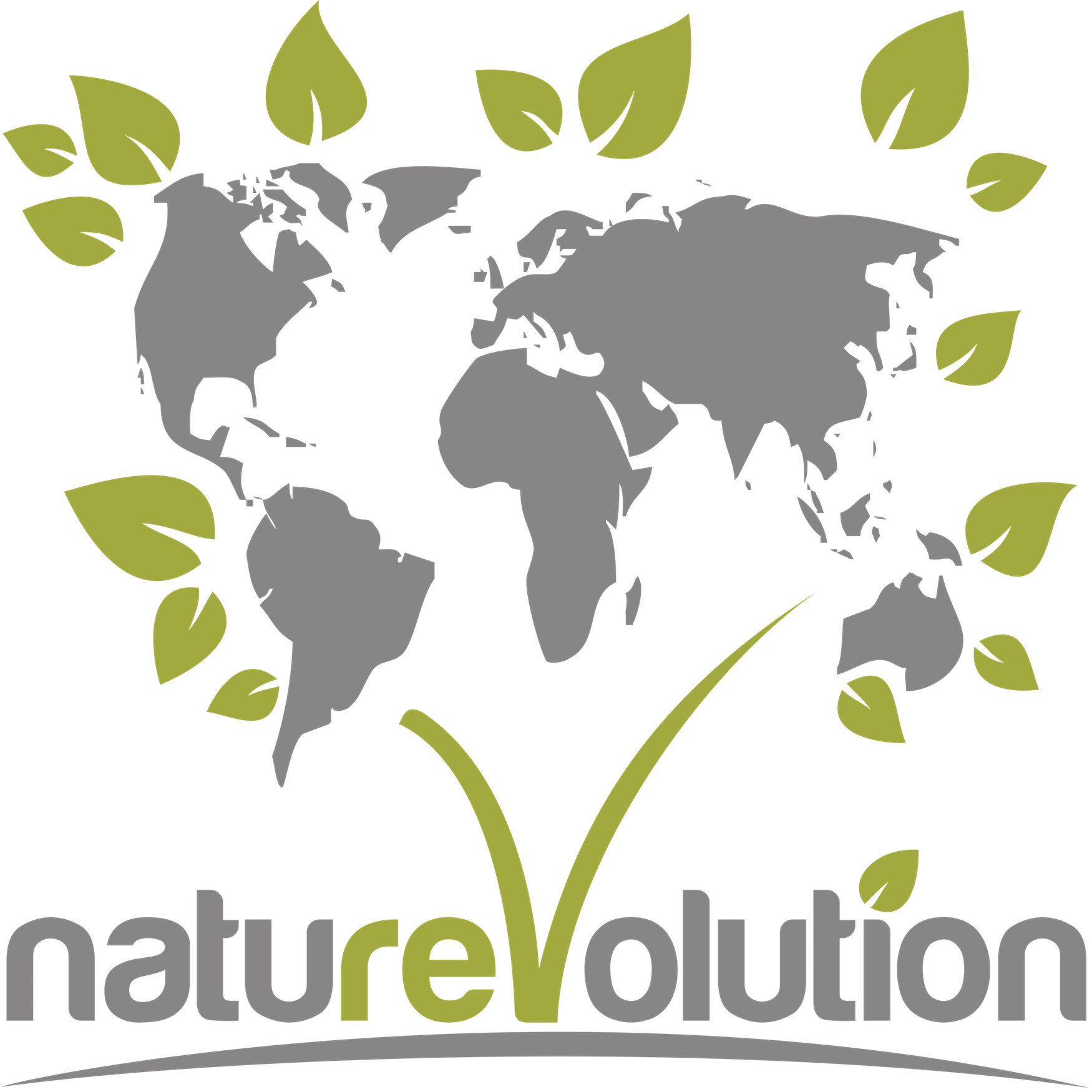
2021
Naturévolution is an NGO for the preservation of nature and international solidarity, which has been working since 2009 for the conservation of biodiversity and endangered natural habitats, and the development of communities that depend on them. In partnership with local actors, the NGO works towards social aid (education, health, food, waste management), economic aid (ecotourism, agroforestry, beekeeping), and environmental aid (biodiversity conservation, awareness, research). It works specifically in Madagascar and Indonesia, and also carries out awareness-raising activities throughout France by offering films, conferences and exhibitions.
Present in the Makay region since its creation, Naturévolution has helped to make this region a protected area since 2017. Increasingly affected by episodes of drought and famine, more and more groups of villagers are leaving the cities to settle in the region in search of farmland, contributing to the deforestation of the Makay forests and an increase in poaching. In this context, to ensure the preservation of this area and the food security of its inhabitants, Naturévolution works alongside local communities to sustainably improve both their living conditions and their environment.
The project supported in 2021: The Foundation is accompanying Naturevolution in the Makay region of Madagascar to build and equip 5 school canteens and to set up training sessions for cooks.
The association called on the Bel Foundation to finance the “Seeds of Change” program. Through this project, the association hopes to alleviate periods of food insecurity by creating school canteens. Thanks to the establishment of rice fields and “school gardens”, local communities are trained in new agro-ecological techniques. Community attics have also been set up to guarantee rice stocks throughout the year. Within the schools, the children benefit from the harvests of the vegetable and rice gardens, contributing to their education and development. The Foundation’s support allows Naturevolution to provide a daily meal to 500 school children in Makay.
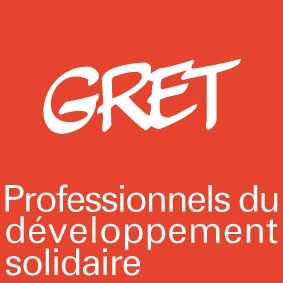
2021
Founded in 1976, GRET works to fight poverty, reduce structural inequalities, promote economic and social rights, and preserve the environment. GRET works in some thirty countries on three continents to serve the most vulnerable people. Its actions, which are the result of long and sustainable establishments in the countries where it operates, are based on a co-construction approach with communities and a vast network of partners.
As a historical partner of the Foundation, GRET has been accompanied on several occasions in the context of nutritional awareness programs in Burkina Faso. In 2017 and 2018, the Foundation provided support to the NGO to develop the “ALLOLAAFIA” program, making it possible to inform and raise awareness through cell phones among disadvantaged families about maternal and child nutrition issues.
In 2020, the Bel Foundation renewed its support to GRET for the implementation of a pilot project to relocate milk production and supply seven school canteens in Bobo Dioulasso, Burkina Faso. With the success of this experience, GRET is proposing to duplicate this project in Senegal this year.
The project supported in 2021: thanks to the Foundation’s support, GRET is accompanying mini-dairies in the development of a fortified dairy product that will improve the diet of students in three school canteens in the Dagana region of Senegal.
Capitalizing on the project initiated in 2020 in Burkina Faso, GRET asked the Foundation to replicate it in the Senegalese context. In this region of northern Senegal, the challenge for GRET remains the same: to improve the living conditions and income of livestock-raising families by strengthening the local milk industry. GRET will support two mini-dairies to produce fortified thiakry, a local product made from milk and millet, enriched with iron.
This product will be distributed twice a week in 3 elementary schools, allowing 500 students to fight anemia.
Through this new project, GRET aims to provide a sustainable solution to the problems of malnutrition in the region.
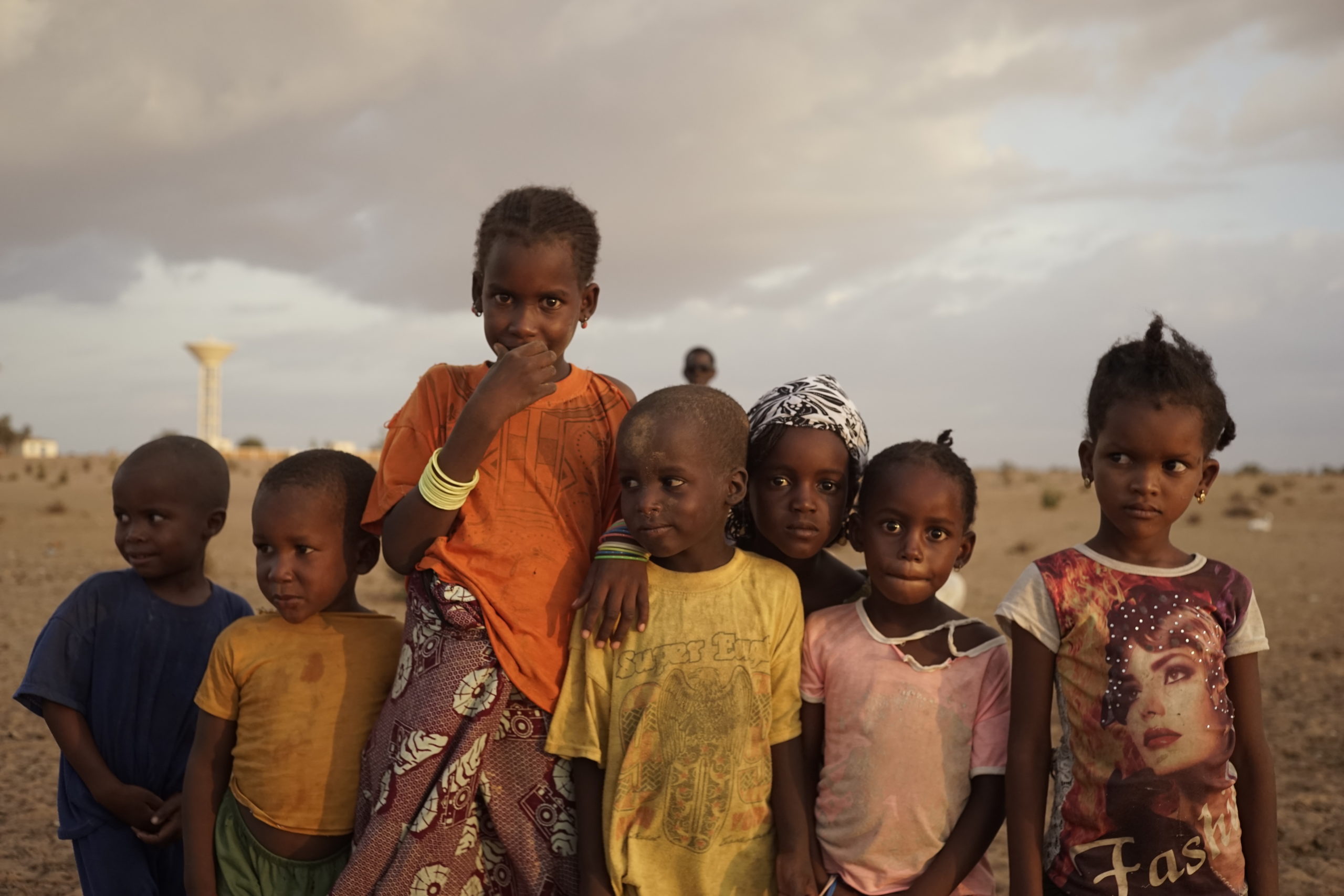
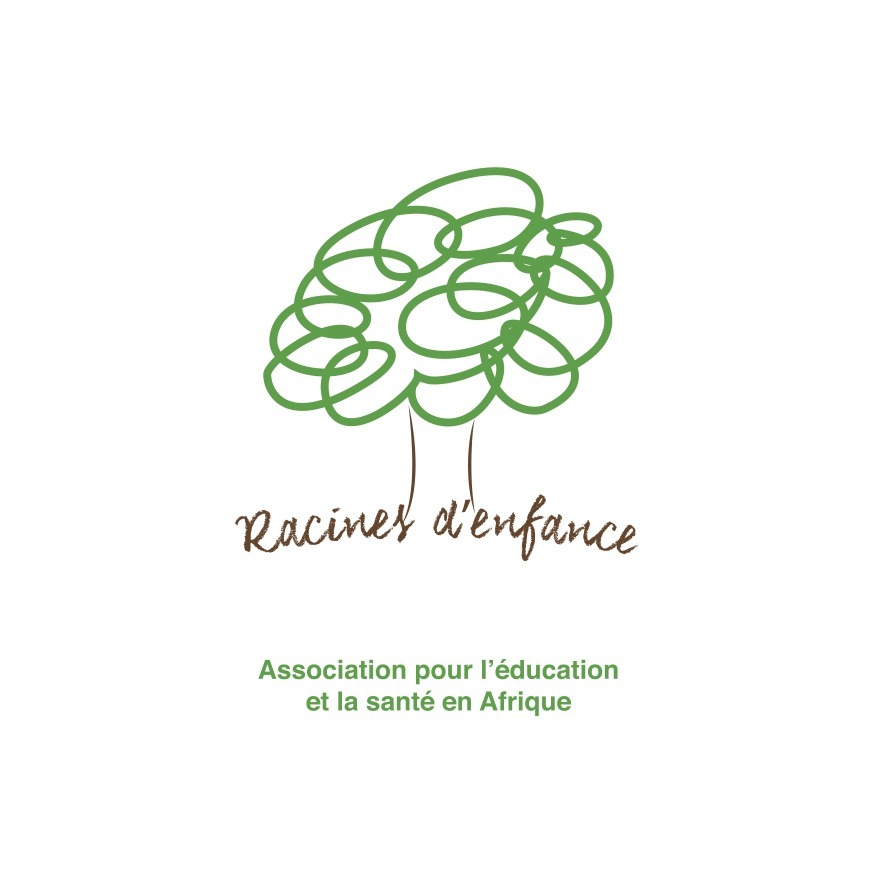
2021
Since 2004, the French association Racines d’Enfance has been working exclusively in rural areas of Senegal with the mission of promoting children’s education. Since its creation, it has built a dozen preschools and has provided schooling to more than 8,600 children, from age 2 to 7. Its objective is to contribute to improving the living conditions of the children and to prepare them to continue their schooling by going to elementary school. Through its action, the association also allows mothers to have free time to devote to the development of income-generating activities.
The Bel Foundation supports Racines d’Enfance in the development of these preschools. After three years of partnership, 6 canteens have been built, fitted out and equipped with vegetable gardens (for more information, discover the projects of Racines d’Enfance supported by the Bel Foundation in 2018, 2019 and 2020).
The project supported in 2021: the Foundation is supporting Racines d’Enfance in the construction of the canteen for its 12th preschool.
The Bel Foundation’s support will make it possible to finance the construction of the kitchen, the canteen, and the establishment of a vegetable garden, to guarantee the food supply for this new school. The goal is to offer the schoolchildren as well as the staff a daily balanced lunch, and thus contribute to the improvement of their health and therefore to a better concentration in class.
Like the other schools managed by Racines d’Enfance, this 12th one is self-managed by a school committee composed of villagers, teachers and representatives of the administrative authorities, which ensures the sustainability of the school and the canteen. Click here to know more about this school.
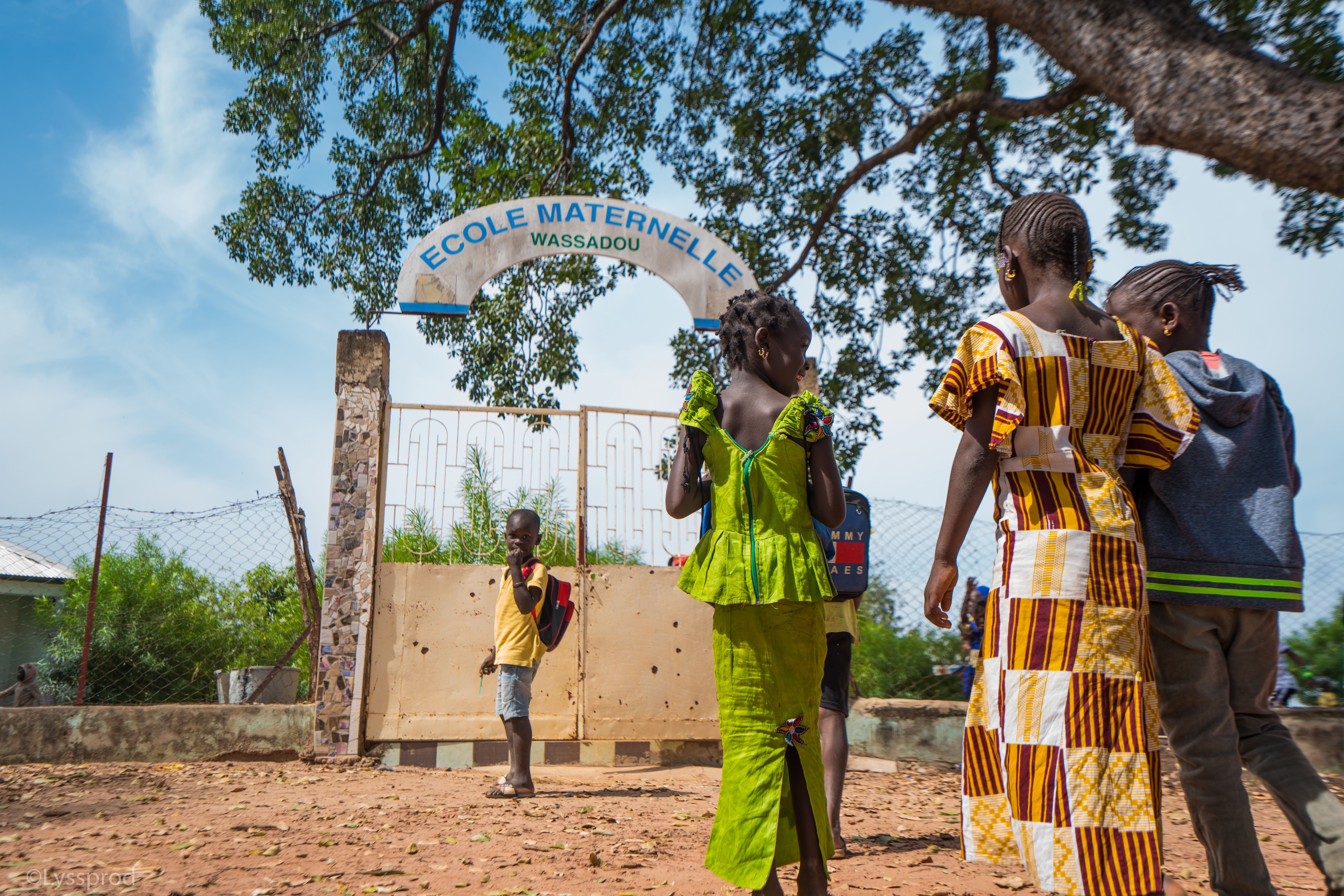

2021
Since 1967, Caritas has been working to improve the living conditions of the poorest people and to provide assistance in disaster and emergency situations. The Caritas Egypt branch is part of the international Caritas confederation and works in several Egyptian regions to help the most vulnerable populations. The association helps particularly in rural Egypt but also in urban areas, in the slums.
In 2021, the Bel Foundation launched for the first time a call for projects for Egyptian associations and NGOs, to which Caritas responded. In the 6 centers in greater Cairo region that the association manages, one of them requires the renovation of the school canteen for children on the margins of Egyptian society.
The project supported in 2021: the Foundation is providing financial assistance to Caritas to consolidate a school canteen located in a center for people affected by leprosy in the Kalyoubeyia region.
Caritas manages a hospital center (Abu Zaabal Center) that welcomes nearly 500 families affected by leprosy. These families are generally rejected by society because of their disease, and thanks to Caritas, they benefit from a welcoming and professional environment. Within this center, Caritas has set up a daycare center and a nursery school to welcome the children of these families. The Bel Foundation’s support has enabled the school’s canteen to be equipped with utensils and appliances to improve the preparation of meals served to the children. A vegetable garden as well as training sessions are completing Caritas’ action, in order to bring sustainable knowledge to the families and the school staff on nutrition issues. Thanks to this project, the association hopes to be able to distribute an additional meal to each child daily, to encourage their development.
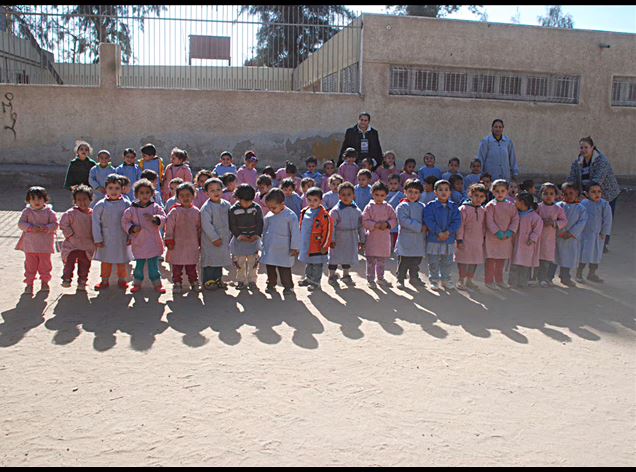
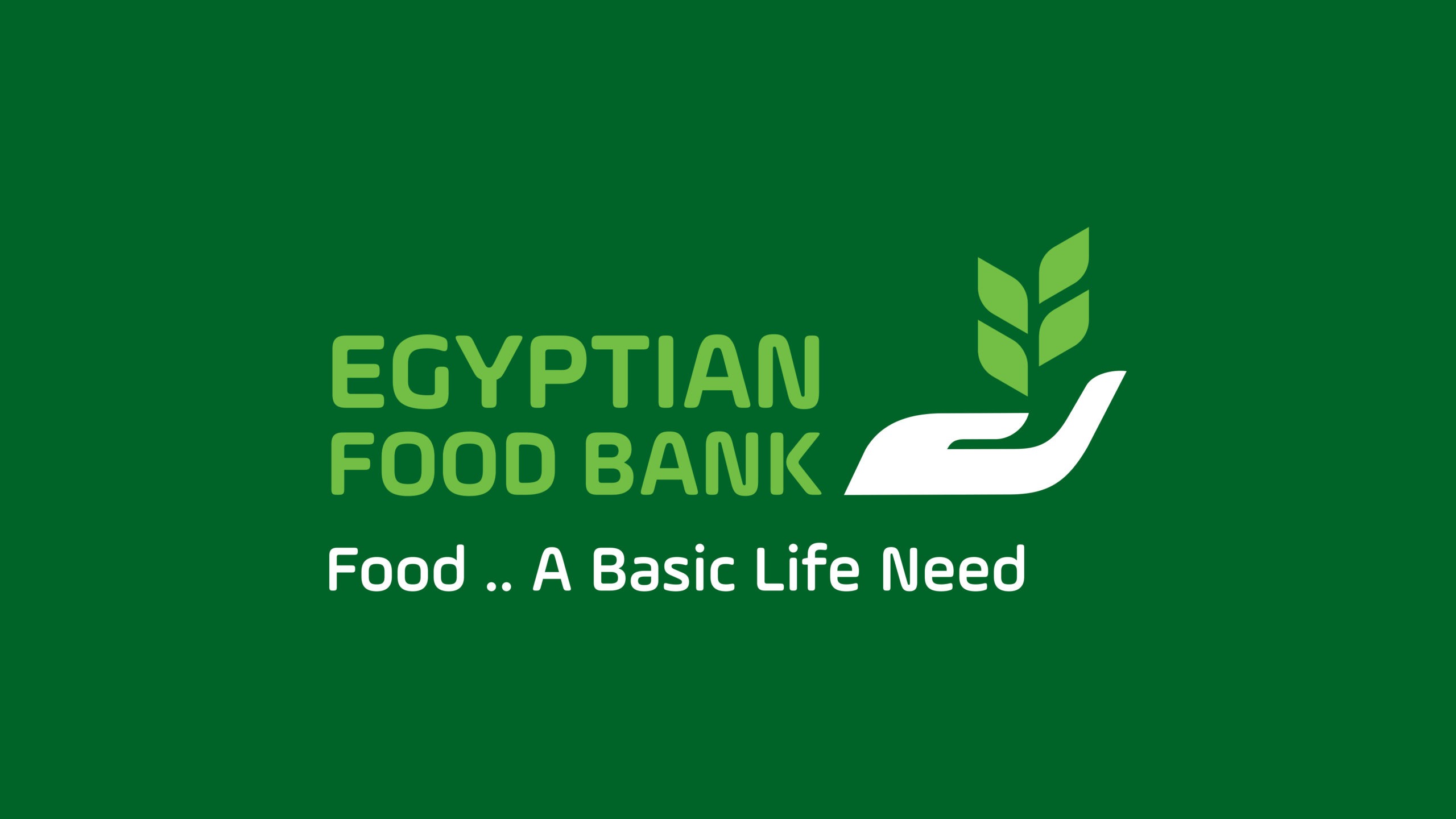
2021
Established in 2006, the NGO Egyptian Food Bank implements a variety of programs focused on development, food distribution and awareness, in order to fight hunger in Egypt in a sustainable manner. Through these actions, the NGO also aims to raise awareness about the fight against food waste. Specialized in food aid issues, Egyptian Food Bank has been implementing since 2010 the “School Feeding Program”, in collaboration with the Egyptian Ministry of Education, to improve the nutrition of students in 44 priority government schools, and thus contribute to increase the schooling rate. Since the launch of this feeding program, more than 13 million meals have been distributed in 10 Egyptian governorates.
In 2020, the Bel Foundation helped the NGO equip and modernize 10 of these schools. Between the Alexandria and Cairo regions, several thousand students from underprivileged neighborhoods can now benefit from meals prepared in safe conditions.
The project supported in 2021: the Foundation is renewing its support to the NGO to develop the “School Feeding Program”, to equip 19 new school canteens throughout the country.
The extension of the partnership between the Foundation and the Egyptian Food Bank allows the NGO to continue its mission in the schools identified with the Egyptian government. In each new primary school, the kitchens are equipped with appliances that meet strict specifications, utensils, and various equipment to ensure good conditions for preparing the meals provided, and then distributed daily by the NGO to the schoolchildren. Through the School Feeding Program, the Egyptian Food Bank also recruits and trains some mothers, thus creating employment and ensuring the sustainable management of these canteens.
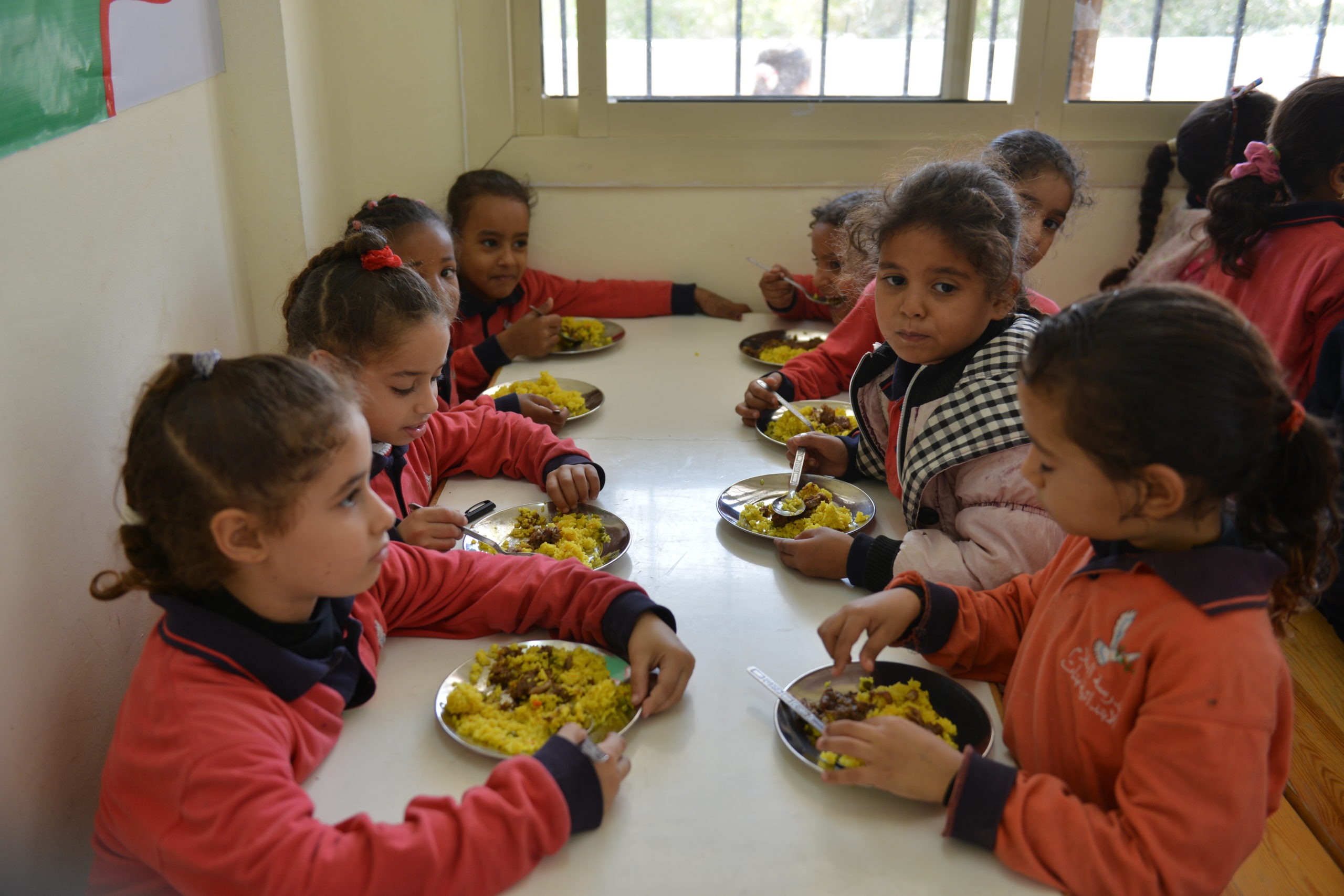
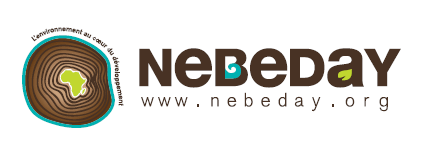
2021
Nébéday is a Senegalese environmental protection association that works for the participative, sustainable management and greater exploitation of the country’s natural resources. Setting up professional sectors, developing income-generating activities for women, as well as educating children and raising their awareness of environmental protection issues and reforestation, are at the heart of its day-to-day work. In particular, Nébéday is working to promote the Moringa plant, considered to be the “tree of life” and renowned for its high nutritional value thanks to its iron and protein content. The association operates in the Fatick region, located in the Sine-Saloum delta, where there are regular droughts and salinisation of the soil, and where almost 20% of children under the age of 5 are malnourished.
The project : continuing the introduction of Moringa powder in Senegalese schools, with the aim of improving children’s nutrition.
After support in 2019 and 2020, this year brings to a close this project to improve the nutrition of schoolchildren thanks to Moringa powder, and is therefore the final pilot phase before the program is rolled out to a larger number of schools in the same region.
Find out more about the project supported in 2019 and 2020.
